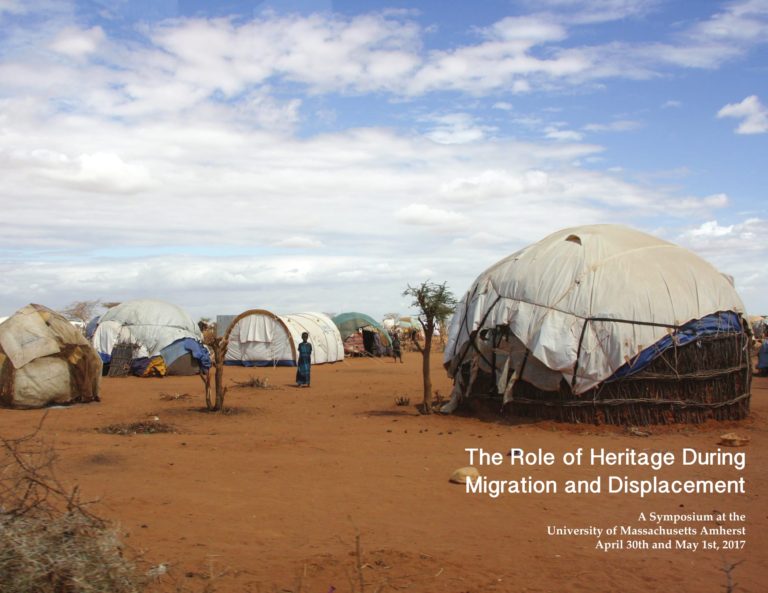
The In-Herit Project explores the emerging role of heritage in improving ontological security and mitigating the trauma of displacement in the context of a global network of heritage researchers. We explore how cultural heritage contributes to a sense of collective identity and place-making, improving ontological security and how it can play an important role in mitigating the traumatic impacts of displacement and rapid environmental change.
Around the globe, disruption of natural and man-made environments will increase as the effects of climate change increases the risk of catastrophic events, and the instances of war and civil unrest rise as competition for resources becomes more critical.
In 2015 there were 65.4 million displaced persons in the world, up from 19.4 million in 2005 (UNHCR 2015) and the number is climbing. But how people respond to disasters, war-related trauma and displacement, the rate at which they recover and the steps they take to mitigate future disasters is substantially influenced by both their culture and their cultural heritage (Rohit 2010; Shrotryia 2013).
Heritage and its role in ontological security impacts a wide range of activities and decisions people make both individually and collectively. We know there is a positive link between place identity and environmentally responsible behaviours such as gardening, leading to participatory community actions and community resilience (Harris et al. 2014; Jean 2015; Sampson and Gifford 2010.)
What is currently missing in the climate change resilience and refugee debates is a discussion of the impacts of cultural heritage on rebuilding and resettlement efforts, and an understanding of how human societies will sustain and reinvent themselves in the face of great environmental, social and political change. Disaster management and resettlement efforts must incorporate the spectrum of attitudes, values, knowledge, and social and legal practices that are embodied in cultural heritage.
This includes three primary aspects of cultural heritage:
- An understanding of place and place-making in the context of a cultural landscape
- The intangible heritage of attitudes, values, and practices that govern a culture
- The history of cross-cultural relations in a region, particularly between dominant and minority communities.
Cultural landscapes and their connected intangible heritage of attitudes, values, and traditions affect place-making, place identification, and social adaptation, and are critical to the security and identification people seek under the trauma of displacement.The In-Herit Project explores these issues in the context of a global network of heritage researchers.
We explore a variety of themes within this research, including how heritage contributes to a sense of ontological security; collective identity and place-making; how place-making plays an important role in mitigating the traumatic impacts of displacement and rapid environmental change; how traditional agricultural practices can contribute to both food security and ontological security; and other critical issues of culture and heritage.
Selected outcomes
- Scientific Symposium for the ICOMOS General Assembly, Marrakesh, Morocco, 17 October 2019, E.Brabec attended and presented “Cultural Heritage and Climate Change: Exploring the Impacts and Issues with Andrew Potts, ICOMOS, and Julie Polanco, State Historic Preservation Office, California State Parks.
- The Role of Heritage During Migration and Displacement, Symposium and Workshop was held at The University of Massachusetts Amherst between April 30th and May 1st, 2017. 46 academics from across the network and outside WUN member schools presented papers and discussed the realities of climate change and war-driven migration and displacement in the future.